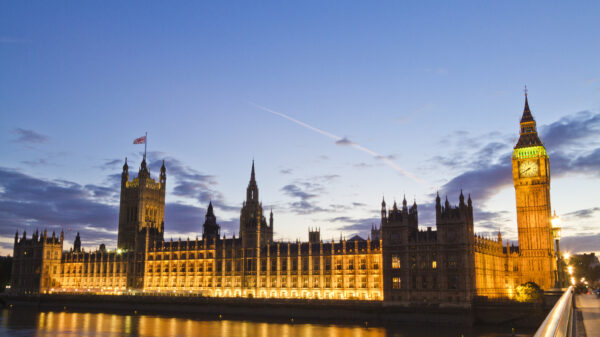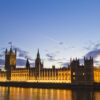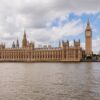Deputy Editor-in-Chief Benjamin Evans and Staff Writer Inés Llamas Delgado review the manifesto pledges of Britain’s five major political parties.
The United Kingdom will go to the polls on Thursday 4 July to elect its next government. Over the previous six weeks, Britain’s political parties have bitterly fought for electoral supremacy. This election has seen its fair share of scandals, stunts, blunders and bets. However, it is key to remember elections are fundamentally a battle of ideas and a fight for the direction of the country.
Britain’s five main political parties (The Conservatives, The Labour Party, The Liberal Democrats, Reform UK and The Green Party) have collectively produced 389 pages of manifesto pledges and commitments covering all areas of government policy and responsibilities. At Roar, we trailed through these documents to pick out what we believe to be the policies most relevant to students in the following areas.
Please click on the area you’d like to find more about:
- Young People and Opportunities
- Tax
- Housing
- The Environment and the Climate Crisis
- Foreign Policy and Defence
- Health
- Crime
- Immigration
- Wider Reforms
Naturally, we could not include everything and we urge you to read the manifestos further after looking at our summaries (they’re linked above). However, we hope this provides a clearer idea over where the parties truly stand and who’s the best for you.
Young People and Opportunities
The manifestos have varying policies regarding young people and education. These will impact everyday university life and the future prospects of students across the country.
One of the Conservative’s flagship initiatives is a proposed “modern” form of national service – compulsory for all of those aged 18. Individuals would choose between 25 weekends of community volunteering or a full-time and paid, year-long placement in the military (with only 30,000 places for the latter). The Conservatives would increase the number of apprenticeship places by 100,000 and crack down on university courses with high drop out rates that are deemed to “leave students worse off”.
Both the Conservatives and Labour would seek to have a mental health specialist in all schools by 2030. Labour would also guarantee either the opportunity of employment or an apprenticeship for all 18-21-year-olds.
The Liberal Democrats would make the UK an Erasmus Associated country, meaning university students could freely study across the EU. They would also give all adults a £5,000 ‘life-long’ skills grant to support re-training.
Reform UK would remove the interest on student loans and ensure universities offer two-year undergraduate courses. Additionally, they have promised a “patriotic curriculum” and to “ban transgender ideology” in UK schools. They would mandate single-sex spaces and cut funding to universities deemed to be “undermining free speech”.
The Greens would ensure people could access mental health support within 28 days. They would abolish tuition fees and fully fund maintenance grants for lower-income students. They would also tailor further support for marginalised communities to ensure all could access higher education.
Tax and Spend
The UK economy is currently struggling. The Institute for Fiscal Studies have stated national debt is at its highest level for 60 years, economic growth is stagnant and according to the Bank of England, core inflation is still concerningly high. This backdrop of little fiscal headroom has come to shape the election, with both the Conservatives and Labour shackled in their plans for tax and spend.
Despite the high level of debt, both major parties have promised not to raise income tax, VAT or national insurance, keep corporation tax at 25% and close the non-domicile tax loophole.
Labour will remove private school’s VAT exemption to fund 6,500 new teachers and free breakfast clubs for primary school students. The party would also introduce a Sovereign Wealth Fund to fund large-scale state investments with £7.3bn.
The Tories have promised to reduce national insurance to 6% by 2027, which would be half the rate at the start of this year, a tax cut they claim to be worth £1,350 for an earner on £35,000.
Reform UK, whose manifesto contains £141bn of additional spending commitments, have promised to raise the threshold for paying income tax to £20,000 and abolish inheritance tax for estates worth up to £2mn, however, they will raise the NI contributions of non-UK residents to 20%.
The Green Party have promised a 1% wealth tax on assets worth over £10mn and 2% over £1bn.
The Liberal Democrats would focus their tax rises on big business, increasing the digital services tax to 6% and restoring the Bank Surcharge.
Housing
The average house price in the UK was £285,000 (rising to £508,000 for London) in December 2023, in May 2010 it was £171,000 and at the start of this Parliament in 2019 it was £232,000. High house prices as well as increased interest rates have meant many young people have struggled to get on the housing ladder.
To address this the Conservatives have promised to build 1.6mn new homes over the next Parliament, with a strategy of building on ‘brownfield’ sites and raising the density of central London to that of cities such as Paris.
Labour have promised to construct 1.5 million new homes, promising to relax the planning regulations, build on disused areas of the ‘green belt’, labelled the ‘grey belt’, as well as banning Section 21 no-fault evictions. The party has also promised to introduce a New Towns Act to build new towns with affordable housing, previous moves like this led to the creation of Milton Keynes, Telford and Basildon.
The Liberal Democrats have promised to build an additional 380,000 new homes a year, with 180,000 being social housing, as well as ending rough sleeping within the next Parliament.
On stamp duty, the tax paid when you buy a house, Labour will bring the threshold down to a property value of £300,000, whereas the Tories have promised to keep it at the raised value of £425,000 and Reform UK will raise it further to £750,000 for first-time buyers.
Both the Conservatives and Labour have promised £6bn and £6.6bn to upgrade energy efficiency in homes such as improving insulation and heat pumps, the Green Party have promised £29bn for this.
The Environment and the Climate Crisis
Climate change is a global issue that affects everyone, especially young people. The UK has had a successful track record in cutting its emissions from energy use but still looks uncertain to meet its Net Zero targets and many UK homes lack in energy efficiency. To address this the political parties propose the following.
The Conservative Party promotes an “affordable and pragmatic transition to net zero” committing to not introducing any new green taxes. On the contrary, they intend to create new gas power stations. They also propose to invest £6 billion in energy efficiency over the next three years and to introduce carbon pricing by 2027.
Similar to the Conservatives, Labour would invest an extra £6.6 billion to upgrade the energy efficiency of over 5 million homes.
The Labour Party aims to create 650,000 green energy sector jobs by 2030 and achieve a zero-carbon energy grid by the same year. Labour’s flagship policy is the creation of GB Energy, a publicly owned clean energy company funded with £8.3bn of state investment. Additionally, they propose extending the windfall tax on oil and gas profits and supporting regulators to block bonuses for water company bosses not addressing sewage dumping and pollution.
The Liberal Democrats focus on giving companies a duty to protect the environment, including banning water companies from dumping raw sewage into natural water bodies, and aim to make homes warmer and cheaper.
Reform UK plans to abandon the Net Zero pledge, saving £30 billion over the next 25 years. This would scrap £10 billion of annual renewables subsidies, fast-track North Sea Oil and Gas, and ban ULEZ Zones.
The Green Party seeks to reach Net Zero by 2040 (a decade earlier than the current target) and phase out nuclear energy. They propose spending 1.5% of national income on climate finance, banning domestic flights for journeys under three hours by train, and imposing a tax on frequent flyers. They also advocate for a carbon tax across the entire economy, including airlines, and aim to partner with universities while establishing a Commission on Animal Protection.
Foreign Policy and Defence
The world is currently experiencing uncertain times as the wars in Ukraine and Gaza rage on, the far right is on the rise across Europe, the prospect of a Trump return and increased US-China tensions. Here are the main proposals for approaching current international issues.
Most parties, including the Conservatives, Labour, Liberal Democrats and the Green Party, are committed to continue supporting Ukraine against the Russian invasion. The Conservatives claim that they have been the only ones to “mobilise lethal aid” compared to the rest of the parties. Moreover, all parties except Reform UK have declared that they will recognise a Palestinian state and they have advocated for a two-state solution, calling for an immediate ceasefire.
The Conservatives aim to increase defence spending to 2.5% of GDP by 2030. They also target becoming Europe’s largest defence exporter by 2030 and will return international development spending to 0.7% of GDP when fiscally feasible, with funding ‘aligned to national interests’.
The Labour Party commits to NATO and would remain a member of the ECHR. They support the OECD Global Minimum Rate of Corporation Tax. The party would not seek to re-enter the EU but they aim to “deepen ties” with Europe.
The Liberal Democrats seek to eliminate the Rwanda Scheme, which they qualify as “unviable”, and instead they propose to uphold the Refugee Convention. They would also seek to reintegrate the UK into the Single Market to repair UK-Europe relations and eventually rejoin the EU.
Reform UK proposes cutting foreign aid by 50%, but they would seek to renegotiate with the EU for a harder Brexit. Moreover, they would abandon the Windsor Framework, and they propose to increase defence spending to 2.5% of GDP within three years and to 3% within six years. They also propose to recruit 30,000 army personnel, and reject the influence of the WEF and WHO unless reformed.
The Green Party supports dismantling the Trident nuclear system while remaining in NATO, as well as re-entering the Customs Union, restoring free movement of people – especially students. They are pro-European so, as the Liberal Democrats, they would seek to rejoin the EU.
Health
The COVID-19 Pandemic exposed the crisis of NHS healthcare in the United Kingdom. Despite spending 9.3% of GDP on the NHS, as of 2022, the NHS hospital waiting list was at a near-record high of 7.57 million people in June 2024.
To address the backlog the Conservatives have planned to deliver the promise of 40 new hospitals by 2030, with 92,000 more nurses and 28,000 more doctors as well as expanding the power of pharmacists to prescribe drugs. This would be funded through increasing the NHS budget by the rate of inflation each year.
Labour have promised 40,000 further appointments each week by reforming the booking system to end the “8AM scramble” and using spare capacity in the private sector. They would also introduce 8,500 more mental health specialists, ban vape advertisements in a way that appeals to children and continue the now-scrapped Conservative policy of never allowing anyone born after 2009 to buy a cigarette.
The Liberal Democrats branded their manifesto a “plan to save the NHS”. With 8,000 more doctors and a right to see a GP in least 7 days (24 hours if urgent). They would introduce a higher minimum wage for care workers and ensure free personal care for all.
Reform UK would introduce a voucher system for patients to go private if they face long waiting times and they would introduce 20% tax relief for private healthcare and insurance.
The Green Party would increase the health budget by £8bn and meet the demands of striking NHS Junior Doctors by granting them a retrospective pay increase to 2010 levels (a 35% rise in real terms).
Crime
The crime rate in the United Kingdom is 85 per 1,000 people as of April 2024, and the overall UK crime rate has decreased by almost 5% from April 2023. Although the statistics are favourable, there is still room for improvement.
To continue cutting the crime rate, the Conservatives plan to focus on increasing police presence by recruiting 8,000 more officers and building four new prisons to create 20,000 additional places by 2030. Additionally, they aim to combat antisemitism in universities and fund the Protective Security for Mosques scheme with £117 million fund. They also propose new laws to restrict protests, including bans on face coverings, pyrotechnics, and climbing on war memorials, as well as preventing protests that pose a risk of serious disorder or take place outside schools.
The Labour Party treats knife crime as a “moral mission,” advocating for harsher punishments for carrying knives and preventative measures through a ‘Young Futures’ program to deter gang involvement. They aim to halve knife crime and violence against women and girls and propose a trans-inclusive ban on conversion therapy. They also seek to reform transgender self-identification by requiring a medical diagnosis of “gender dysphoria” and a two-year “reflection period” before obtaining a Gender Recognition Certificate.
The Liberal Democrats would prioritise restoring community policing with visible officers and supporting survivors of violence against women and girls in the criminal justice system. They would create a legal, regulated market for cannabis.
Reform UK advocates a “Zero Tolerance” policy where drug dealing results in “mandatory life imprisonment” and substantial possession of drugs would lead to “heavy fines”. They also want to redefine “hate crime”, ensuring that public perception alone does not trigger investigations.
The Green Party proposes making misogyny a hate crime, decriminalising sex work, and pushing to decriminalise personal possession of drugs in stark contrast with Reform UK.
Immigration
Net migration to the United Kingdom hit a record high of 685,000 in December 2023 and so far this year 12,350 people have made the life-threatening journey across the Channel in small boats. According to YouGov, immigration is the fourth most important issue to UK voters and here’s where the parties stand.
The Conservatives would introduce a legal cap on migration. Since 2022, the party has advocated for processing illegal migrants overseas, through flying migrants to Rwanda where they would remain if they failed to achieve asylum in the UK. The Conservatives have promised to fulfil this plan if elected and have signalled they would leave the European Convention on Human Rights (ECHR) to overcome legal challenges to the policy. They have also reformed the visa system so that skilled migrants coming to the UK need to earn a salary of £38,700 to remain here. Finally, immigrants would have to take a health check prior to coming to the UK, this would dictate the cost of their NHS surcharge.
Labour are also committed to reducing net migration over the coming Parliament. They would not continue with the Rwanda Plan and have promised to set up a Border Security Command to work across the channel and dismantle the people smugglers enabling small boat crossings. Labour would match migration to their wider skills strategy and hire an additional 1,000 members of staff to fast-track removals to safe countries.
The Liberal Democrats would reduce the fee of registering a child as a British citizen from £1,214 to the costs of administration, they would lift the ban on migrant care workers bringing their family members and they would abolish visa fees for those on the Youth Mobility Scheme and extend the visa length to 3 years.
Reform UK would freeze non-essential immigration (all sectors bar healthcare), leave the ECHR and ensure migrants have had five years of residency and employment to secure benefits. They would legislate that only international students with “essential skills” could remain in the UK, those skills would most likely be healthcare-related, they would also change the visa rules to bar dependents of international students moving to the UK.
The Greens would permit migrants to work while their asylum claims are being processed as well as reforming the system to be “fast and fair”. They would remove minimum income requirements for family visas and grant voting rights to all those with UK visas.
Wider Reforms
Finally, since the current Conservative government began, and especially during the last year, there has been much talk about the need for constitutional reform to end the lack of trust in British politics, as expressed by the Bennett Institute.
The Conservative Party advocates for amending the Equality Act (2010) to define sex strictly as ‘biological sex’, thereby ensuring single-sex spaces. They also aim to repeal or reform over half of the EU laws inherited post-Brexit by 2026.
The Labour Party seeks to eliminate hereditary peers in the House of Lords (HoL) and replace the second chamber with one that is “more representative of the regions and nations”. In a similar vein, Reform UK proposes abolishing the HoL and replacing it with a smaller, more democratic chamber. Moreover, they plan on introducing a British Bill of Rights to replace the ECHR, and implementing proportional representation in the House of Commons (HoC) alongside the Liberal Democrats and the Greens.
Reform UK will also replace the 2010 Equalities Act to remove requirements for positive action schemes. They would prohibit the use of Shari’a Law in the UK and advocate for a Free Speech Bill to address ‘cancel culture’. They would make St George’s Day and St David’s Day bank holidays.
Several political parties, including Labour, the Liberal Democrats and the Green Party, have advocated for lowering the voting age to 16.
The Greens suggest discussing a “new constitutional settlement”, and propose replacing the HoL with a democratic second chamber, similarly to Labour.















